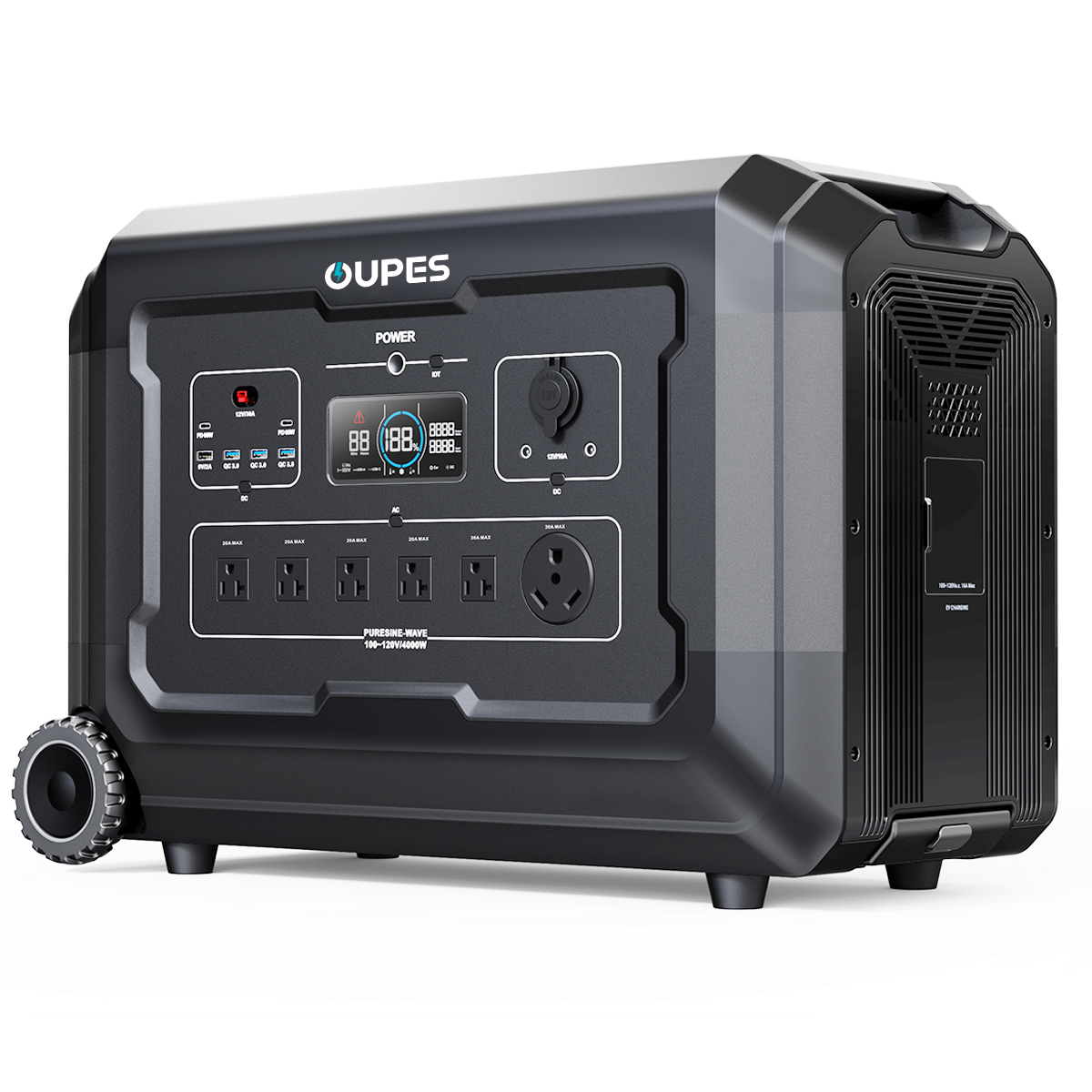
TL;DR / Key Takeaways
- RV solar panel kits provide sustainable, off-grid energy for camping and travel.
- They reduce reliance on fuel generators and minimize environmental impact.
- Properly sized systems ensure efficient operation of appliances, lights, and electronics.
- OUPES offers scalable solutions tailored to RV owners’ energy needs.
Introduction
RV solar panel kits have become a game-changer for travelers seeking freedom from campground hookups and noisy generators. With increasing interest in sustainable living and the growing RV lifestyle, solar solutions provide a reliable, eco-friendly way to keep your vehicle powered on the road. According to the U.S. Department of Energy, solar adoption continues to rise due to falling costs and greater efficiency.
Why Choose Solar for RVs?
Solar power offers independence and flexibility. Instead of being tied to campgrounds with power hookups, RV owners can explore remote destinations without worrying about energy shortages. Solar systems also reduce carbon emissions and save money on fuel over time.
Key Components of RV Solar Panel Kits
A complete RV solar kit typically includes the following components:
- Solar Panels: Convert sunlight into electricity.
- Charge Controller: Regulates voltage and prevents battery overcharging.
- Battery Bank: Stores solar energy for later use.
- Inverter: Converts DC power into AC power for appliances.
- Mounting Hardware & Wiring: Ensures safe installation.
How to Size a Solar Panel Kit
To size an RV solar system, calculate your daily energy consumption. List the wattage and usage hours of all appliances. For example:
| Appliance | Wattage | Hours per Day | Daily Consumption (Wh) |
|---|---|---|---|
| Mini Fridge | 60 | 24 | 1,440 |
| LED Lights | 20 | 6 | 120 |
| Laptop | 50 | 4 | 200 |
| Water Pump | 100 | 1 | 100 |
Total daily demand = 1,860 Wh. A 400–600W solar system with battery storage would be suitable for this setup.
Solar vs. Traditional Power Options
| Power Source | Advantages | Limitations |
|---|---|---|
| Solar Panel Kits | Quiet, renewable, low maintenance, scalable | Dependent on sunlight, higher upfront cost |
| Gas Generators | Reliable, high power output | Noisy, fuel costs, emissions |
| Campground Hookups | Stable, unlimited power | Restricts travel freedom, additional fees |
Scenarios: Practical Use Cases
Weekend Campers
A 200–400W solar kit is often enough for lights, phones, and small appliances.
Full-Time RVers
Require 800W+ systems with larger battery banks to power refrigerators, laptops, and kitchen appliances.
Remote Travelers
Benefit from expandable systems that ensure reliable energy for extended off-grid living.
OUPES RV Solar Solutions
OUPES provides high-efficiency RV solar kits designed to maximize energy capture and storage. Our solutions are portable, expandable, and optimized for both short trips and full-time RV living. With OUPES, travelers gain reliable off-grid power without noise or fuel reliance.
FAQ
How many solar panels do I need for my RV?
This depends on your daily watt-hour usage. Most RVers use 400–800W of panels.
Can solar panels fully replace a generator?
Yes, for moderate energy use. High-demand appliances may still require a backup system.
What is the lifespan of RV solar panels?
Most panels last 20–25 years with minimal efficiency loss over time.
Do solar panels work on cloudy days?
Yes, though output decreases. A battery system ensures stable energy supply.
Are RV solar panel kits hard to install?
Many kits are designed for DIY installation, though professional help is recommended for complex systems.
Conclusion
RV solar panel kits offer freedom, sustainability, and cost savings for travelers. By understanding energy needs, sizing systems correctly, and choosing reliable products, RV owners can enjoy off-grid adventures with confidence. OUPES ensures RVers have access to efficient, durable, and portable solar solutions that truly harness the sun’s energy.




























